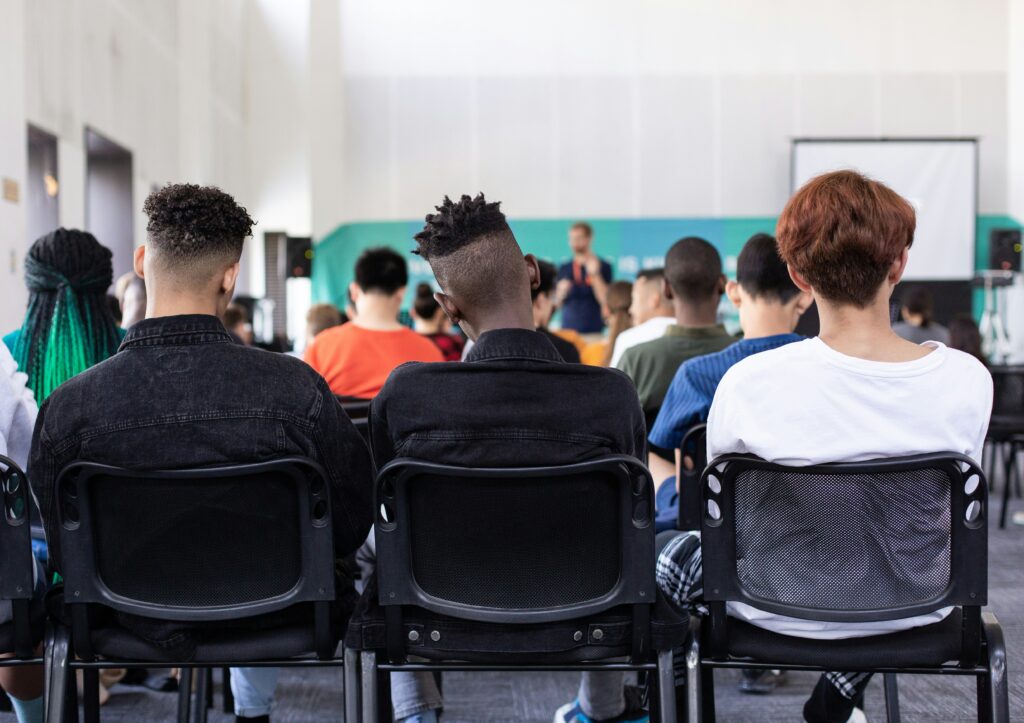At Educate Excellence, we believe that one of the most important things that every student should learn is how to communicate effectively. Talking is only one aspect of communication; other aspects include comprehending others, clearly expressing your thoughts, and establishing deep connections. Strong communication skills are necessary for success in all facets of life, whether you’re interacting with your teacher, classmates, or family. Here are some tips for improving communication skills in primary school pupils and the reasons why Educate Excellence is the ideal assistance for them.
Understanding the Importance of Communication Skills
For your child’s intellectual and personal growth, communication is essential. It serves as the cornerstone for how people listen to others, communicate their views, and participate in class discussions. Their learning experience can be greatly impacted by their ability to communicate effectively, whether they are responding to questions, exchanging ideas in a group project, or engaging in class discussions.
We at Educate Excellence see the value of establishing these fundamental abilities at a young age. In a kind and encouraging setting, we work with students to help them improve their communication skills so they can gain confidence and succeed academically.
Active Listening: A Key Skill for Success
Listening is one of the most crucial components of communication. Active listening entails focussing entirely on the speaker and comprehending what they have to say. Before answering, one must listen to what is being said, analyse the information, and consider what has been stated. In addition to demonstrating respect for others, active listening encourages kids to participate more fully in discussions.
In every lesson, we at Educate Excellence urge our students to engage in active listening. We make sure that students are listening to their peers and tutors during one-on-one or group activities so they can better understand important concepts and provide better answers. Students gain the ability to listen intently and reply intelligently through interactive exercises and facilitated discussions.
Building a Strong Vocabulary
Students can communicate more accurately and clearly when they have a large vocabulary. Whether they are writing an essay, responding to questions in class, or just chatting with friends, it enables them to express their ideas in a way that is understandable to others. Learning is also more fun when kids have a large vocabulary because they feel more comfortable expressing concepts in novel and imaginative ways.
We at Educate Excellence think that words have great power. Our tutors use a range of instructional materials, including books, multimedia, games, and talks, to help pupils increase their vocabulary. In order to assist students become more eloquent and expressive, we push them to pick up new vocabulary and utilise it in everyday interactions. In order for children to comprehend and utilise new language with confidence, our classes are made to introduce it to them in a context that makes sense.
Engaging in Group Activities
Communication abilities can be greatly enhanced through group activities. Students practise speaking correctly, listening to others, and sharing ideas as they collaborate on projects. They also learn the value of cooperation, respect, and teamwork. Through group projects, students can voice their opinions in a secure setting while developing their ability to comprehend and take into account the opinions of others.
In order to promote cooperation and teamwork, we at Educate Excellence include group activities in our lectures. Students frequently collaborate on tasks that call for group discussion, debate, and problem-solving. As kids learn how to effectively communicate and convey their views, these activities not only help them become more proficient communicators but also give them more self-confidence.
Mastering Body Language and Non-Verbal Communication
Speaking effectively involves more than simply what you say; it also involves how you say it. Our communication is greatly influenced by body language, which includes facial emotions, gestures, and eye contact. Pupils can communicate more clearly and confidently when they comprehend the importance of nonverbal cues.
Teaching students the value of body language in lectures and presentations is our main goal at Educate Excellence. We teach students how to use posture and gestures to improve their message, whether they’re giving a speech or just chatting with a peer. Students gain confidence as verbal and nonverbal communicators by honing these skills.
Asking Questions to Promote Engagement
A key element of learning is asking questions. It demonstrates interest, promotes more in-depth thought, and assists pupils in resolving any uncertainties they may have. In addition to enhancing comprehension, students who pose meaningful questions foster an engaging classroom where concepts can be further developed.
At Educate Excellence, we encourage students to ask questions in the classroom. We support kids in feeling comfortable asking questions when they need clarification because we think that no inquiry is too trivial. In order to foster deeper learning, our tutors facilitate open dialogues where students feel comfortable sharing their thoughts, asking questions, and participating in debates.
Public Speaking and Presentations
Although many students find public speaking scary, it’s a crucial communication skill. Public speaking enables students to confidently share their thoughts, whether they are presenting a project in front of the class or speaking at a community event. Additionally, it enhances their ability to project their voice, think clearly, and organise their thoughts.
We give children the chance to practise public speaking in a safe setting at Educate Excellence. We help students learn how to organise their speeches, use interesting language, and properly communicate their thoughts, whether they are preparing for a class presentation or competing in a speech competition. Students gain the self-assurance to speak in front of people over time, which helps them feel more at ease in social and academic contexts.
Using Technology to Enhance Communication
In the digital world of today, technology is essential to communication. Students may now interact, work together, and learn in new ways thanks to technology, whether it’s through video calls, podcasts, or instructional apps. We use technology in our sessions at Educate Excellence to improve communication and learning.
We employ interactive platforms, instructional films, and digital tools that let students participate creatively with the material. Through virtual group projects, online forums, and language-learning applications, technology can also assist students in honing their speaking and listening abilities outside of the classroom.
How Can Educate Excellence Help
Every child has the capacity to develop into a self-assured and proficient communicator, in our opinion at Educate Excellence. We assist students in developing the critical communication skills necessary for success through our individualised approach. Students can practise speaking, listening, and interacting with others in a fun and encouraging setting created by our skilled educators.We provide individualised one-on-one tutoring sessions to make sure every student gets the time and direction they need to advance their communication abilities. Educate Excellence is here to support your child at every stage if you want to help them develop great communication skills. We are dedicated to helping your kid develop a love of learning and to making sure they feel competent, self-assured, and prepared to interact with the outside world.


